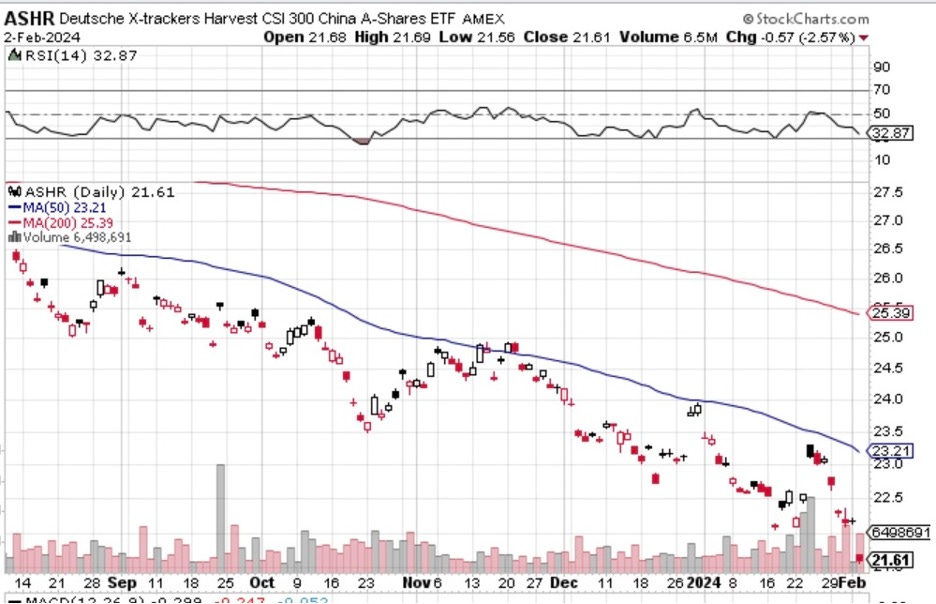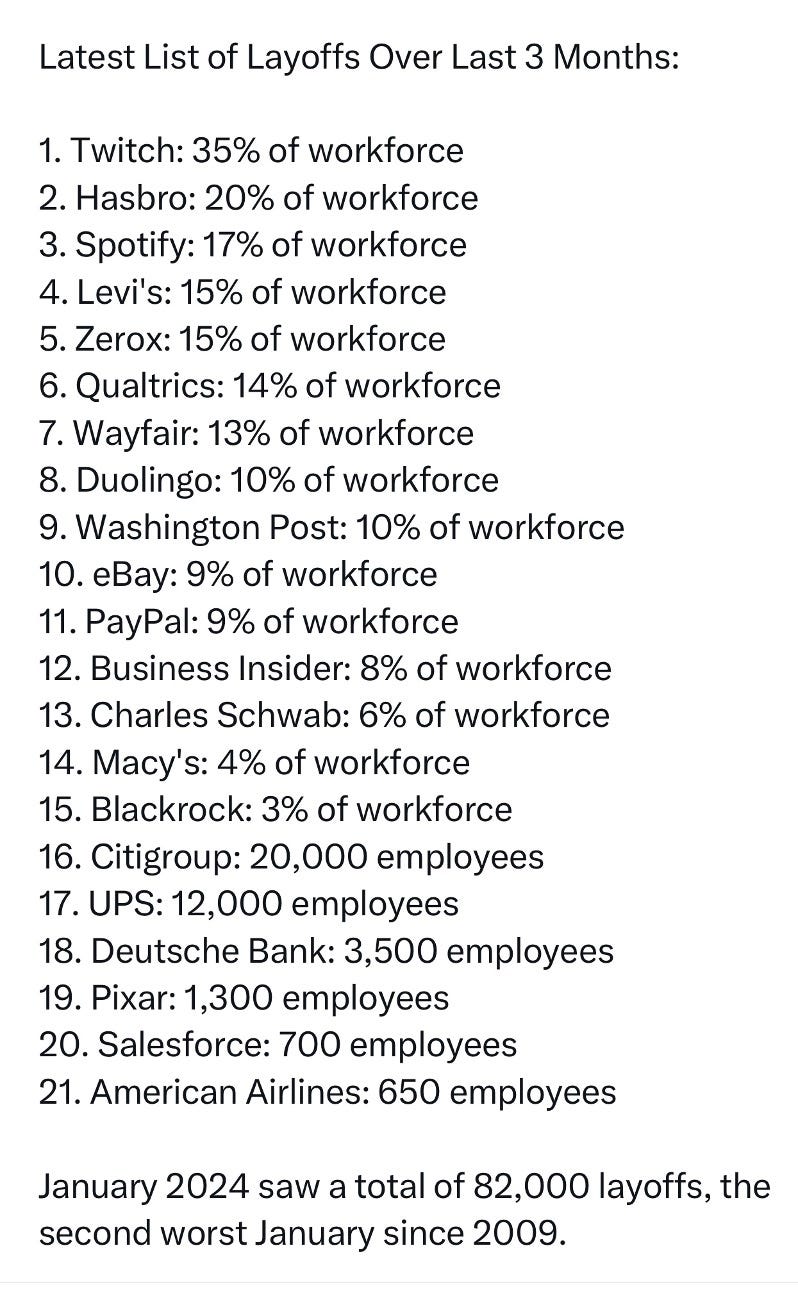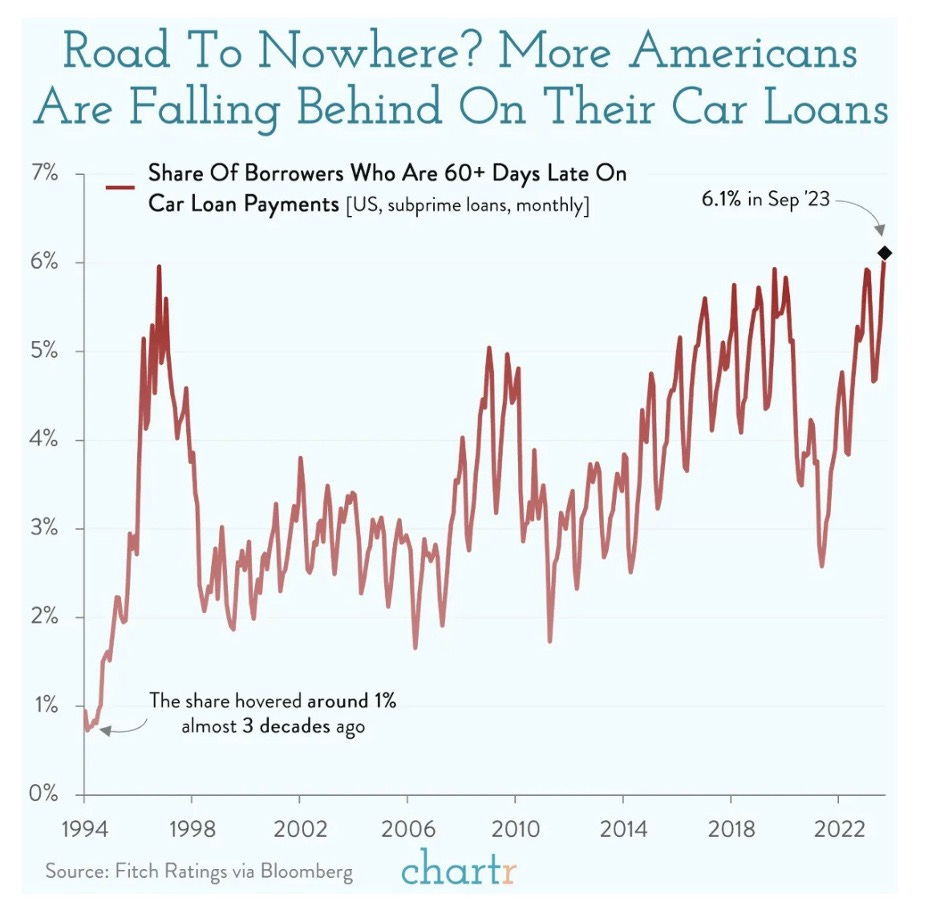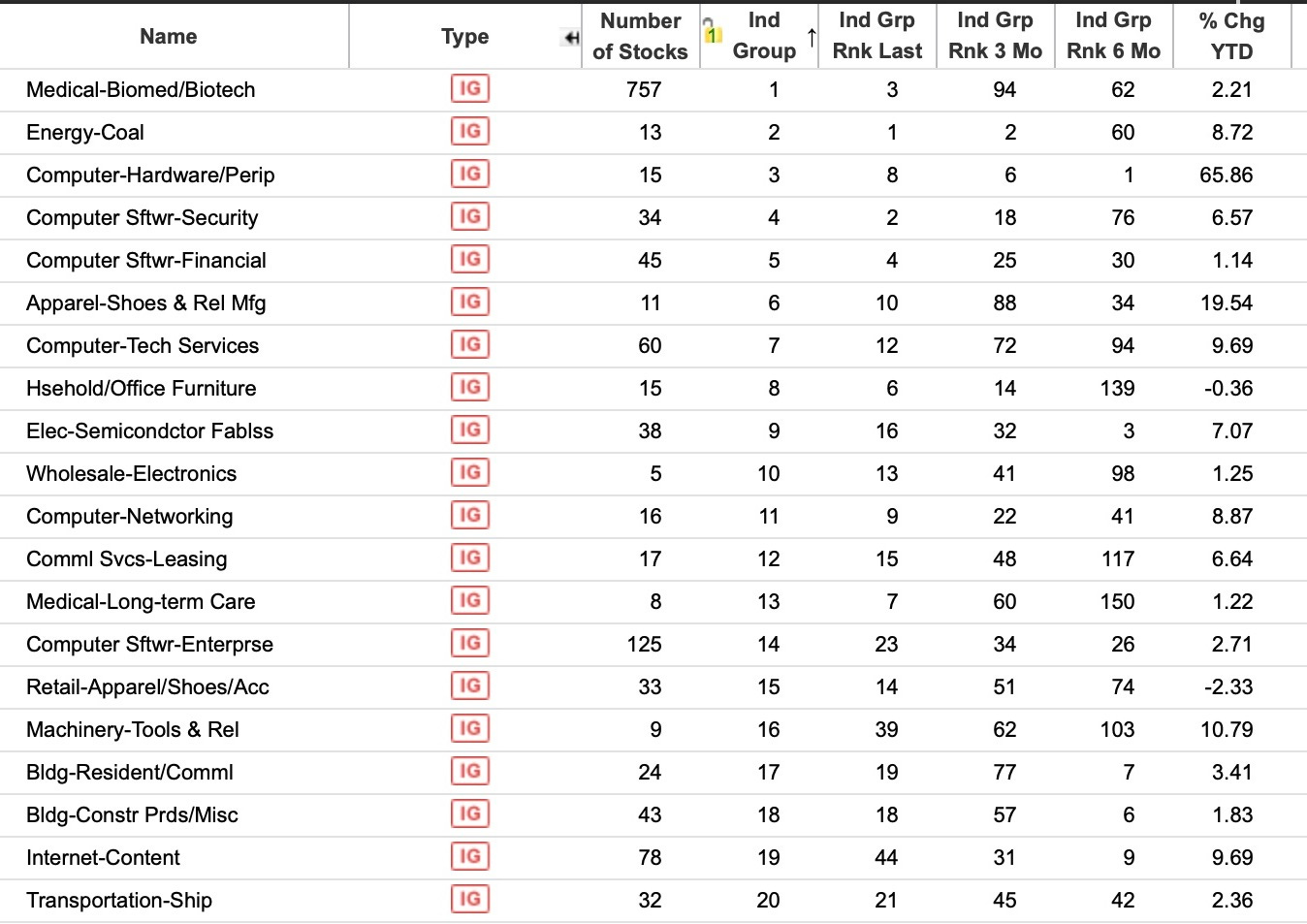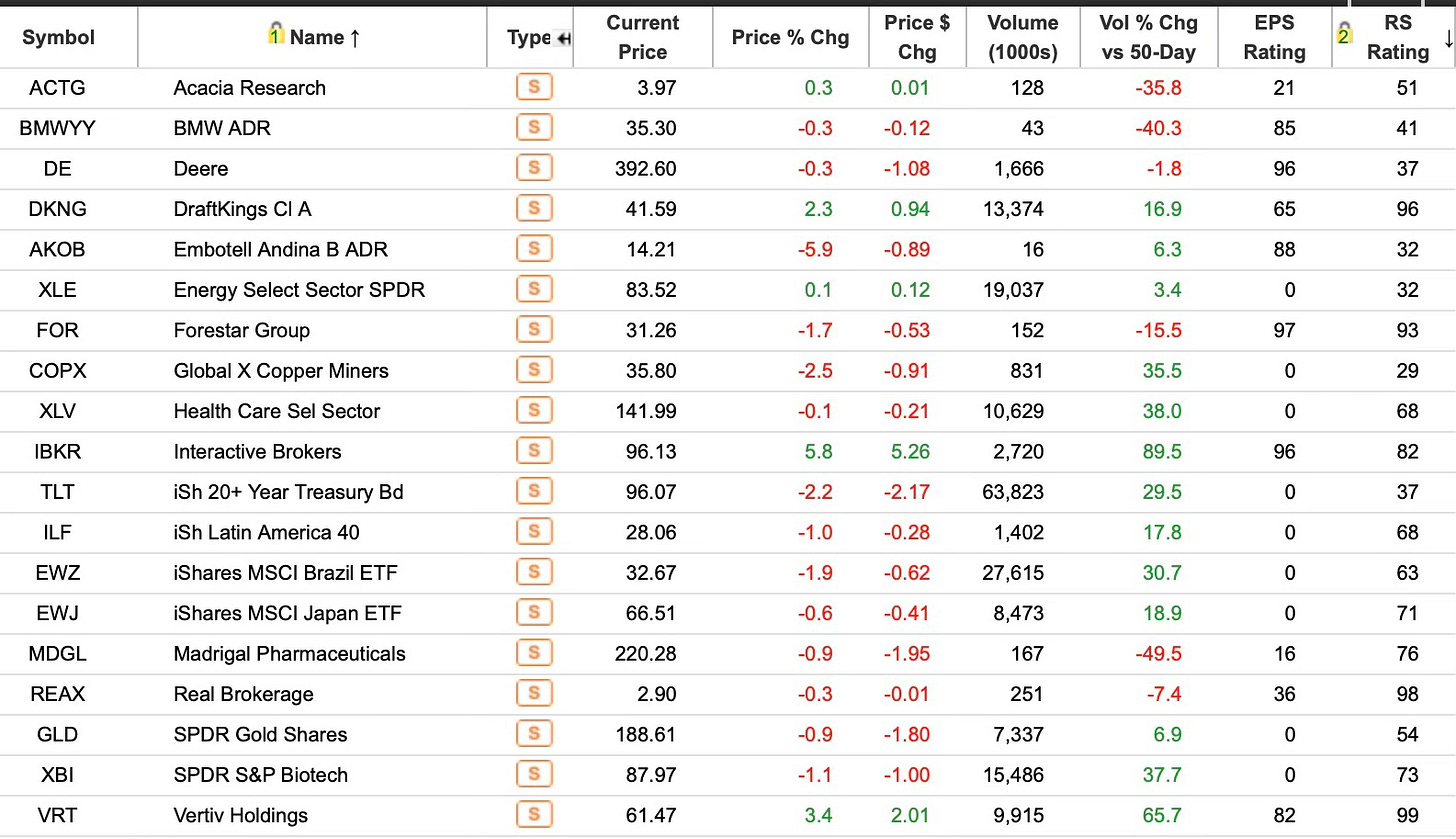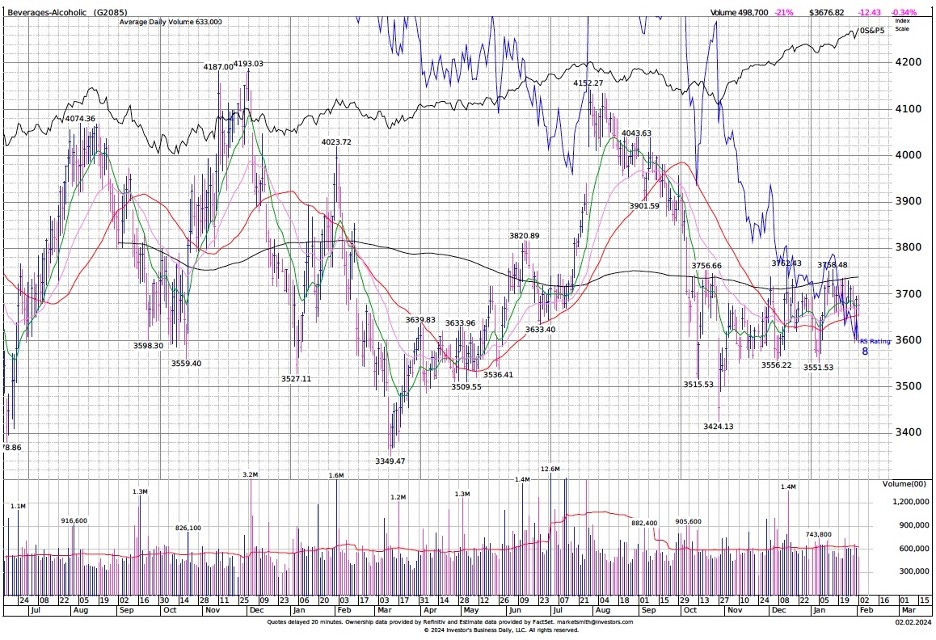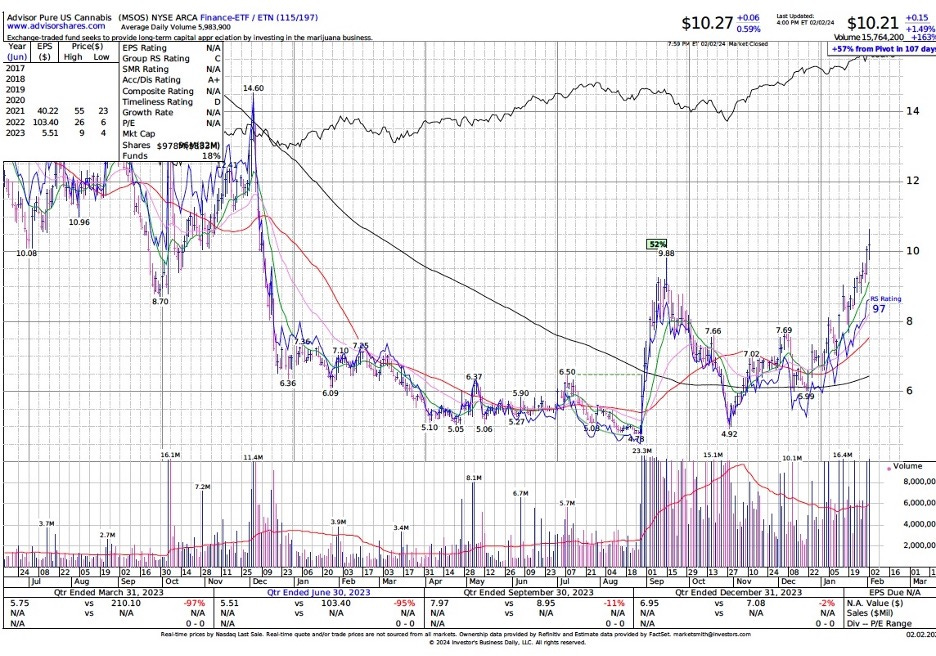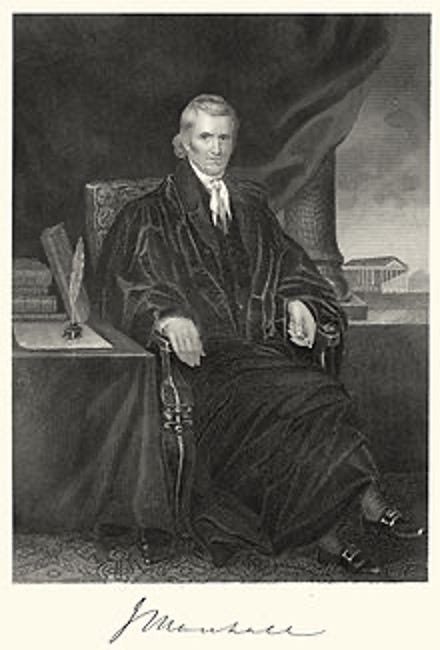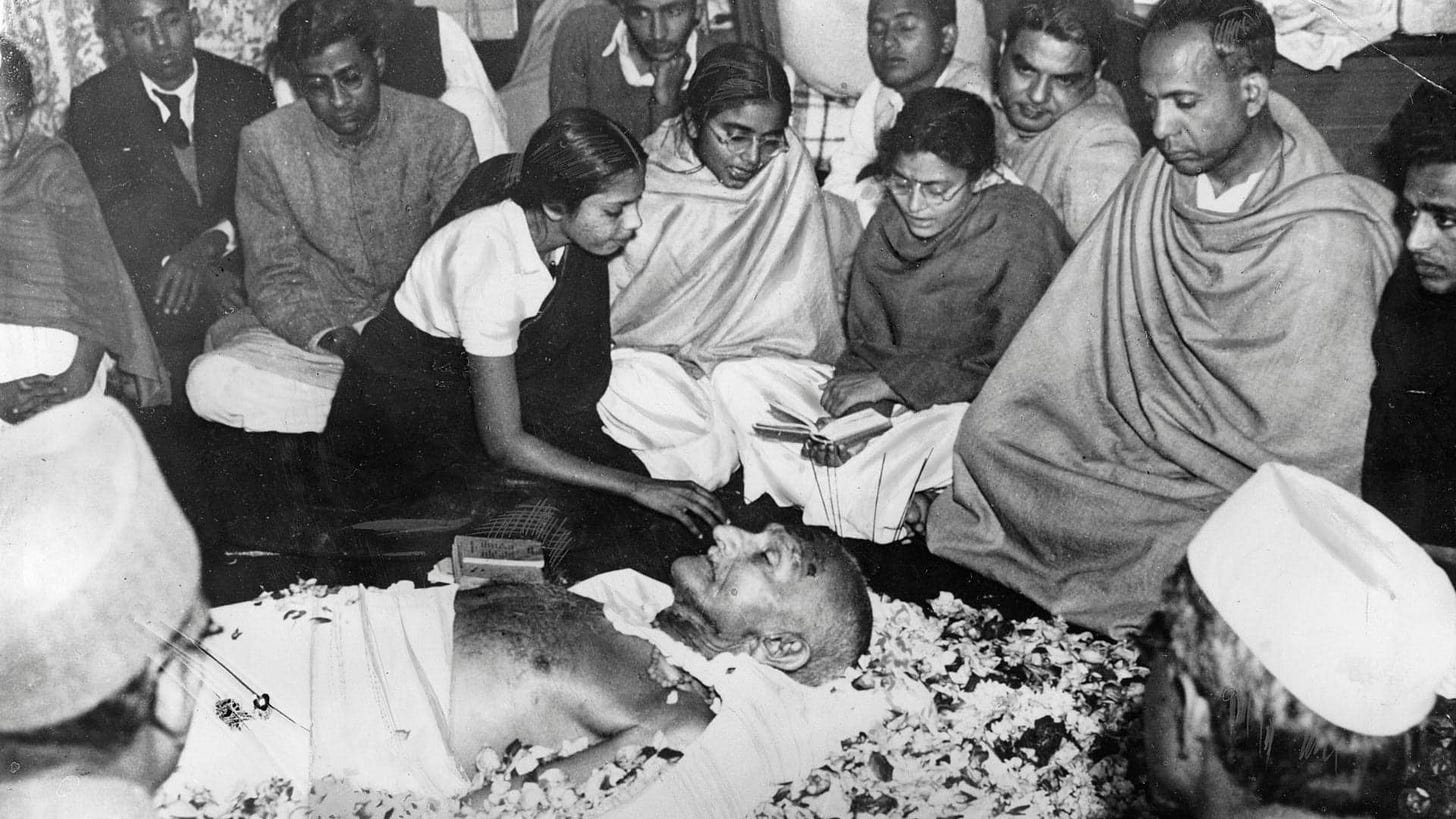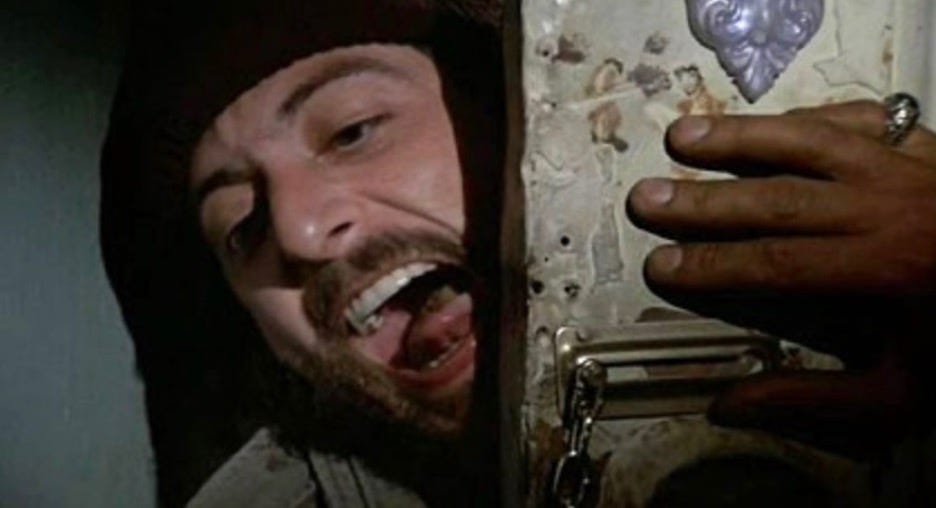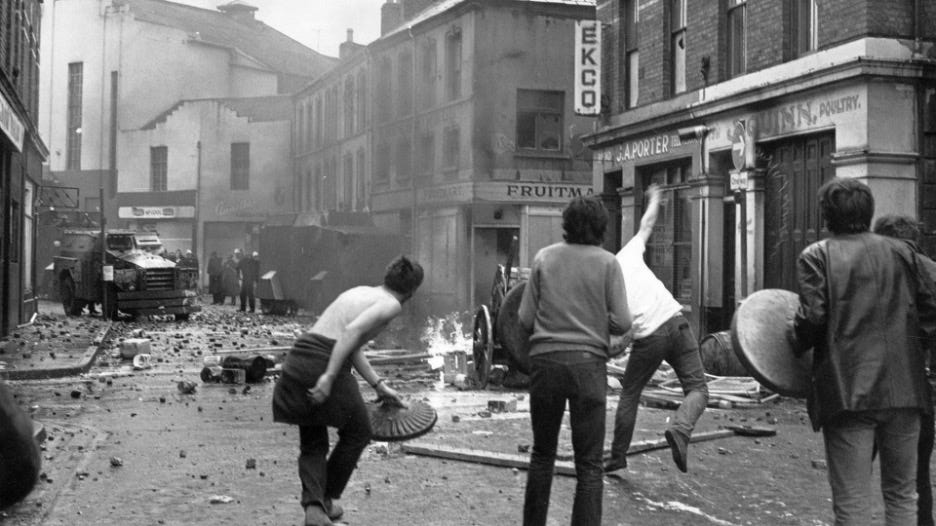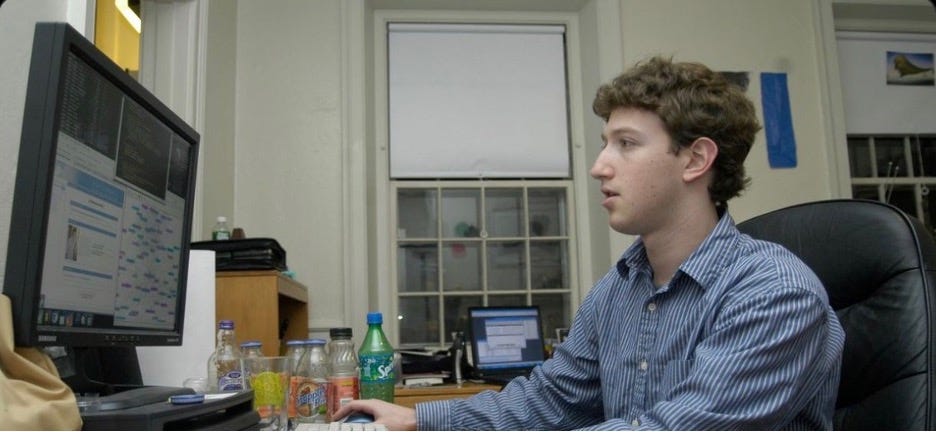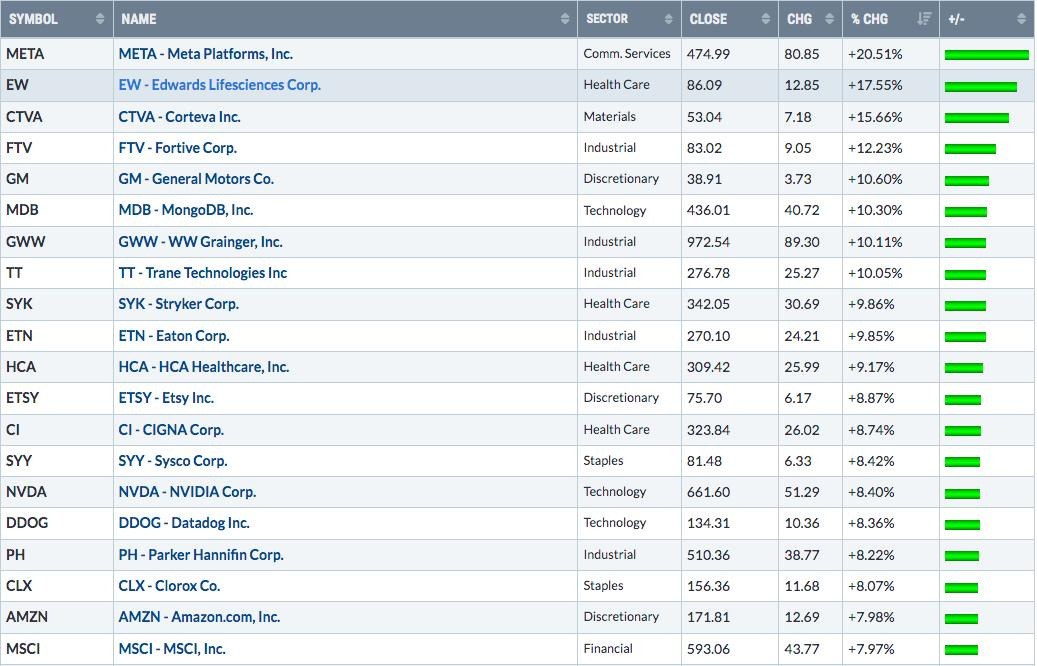Adding to China’s myriad of economic problems, a Hong Kong court last week ordered the liquidation of China Evergrande Group, the world’s most indebted property developer with more than $300 billion in liabilities and hundreds of unfinished apartment complexes across the country. https://wapo.st/3Uj0DYd.
China’s 10-year government bond yield fell to its lowest in nearly 22 years, suggesting hopes for further monetary easing. Morgan Stanley cut its targets for major Chinese stock indexes while raising estimates for Japanese benchmarks as two of Asia’s biggest stock markets continue to diverge.
No end in sight for China’s 5 year plus bear market:
Inflation watch: Tickets for this year’s Super Bowl are the most expensive ever, going for an average $9,815 each, according to TickPick. That’s 70% more than last year.
January employment data was a monster blowout, with nonfarm payrolls expanding by 353,000, twice what economists had forecast, while average hourly earnings jumped by 0.6% in the month and 4.5% from a year ago. Revisions to the two preceding months’ payrolls added another 126,000. Treasury yields rose sharply on the news.
Blackdawg is still trying to reconcile the “official” employment data with the flood of mass layoff announcements. One factor may be seasonal adjustments which are typically massive in January. Another thing to note is the likelihood that the quality of jobs gained is significantly lower than the quality of the jobs being lost at the likes of the following companies:
Remember…
Regional banks dropped 7.2% last week on heavy volume as the collapse of commercial real estate resulted in large loan losses both here and internationally. https://www.wsj.com/finance/banking/new-york-community-bancorp-stock-plunges-35-reigniting-fears-for-regional-banks.
Top 20 Industry Groups
Top 5% of companies by EPS and RS per Investor’s Business Daily
Blackdawg Watch List
Blackdawg Holdings [11% YTD, 27% annualized 4 year return]. Zero Mag 7 exposure which is good (in a challenging non-mega tech environment) and bad (should have ridden that train for even greater returns). Stocks driving performance: VRT 0.00%↑ DKNG 0.00%↑ REAX 0.00%↑. Also contributing to performance, largely sitting out of both stocks and bonds in 2022, resulting in zero time recovering from losses during a period where all assets declined in value.
Past performance guarantees nothing. War, inflation/rate policy uncertainty, elections among other issues will present challenges to continued outperformance while a broadening out of the market would be a tailwind for Blackdawg’s strategy.
Ken Griffin, one of the largest donors to Harvard University, said he won’t support the school financially unless it makes significant changes and accused elite US colleges of producing “whiny snowflakes” instead of future leaders. “I’m not interested in supporting the institution,” Griffin said of Harvard at the MFA Network conference in Miami on Tuesday. The billionaire said the university must make clear that it will “resume its role educating young American men and women to be leaders and problem solvers.” https://www.bloomberg.com/news/articles/2024-01-30/griffin-says-he-won-t-support-harvard-financially-after-failures.
US, European adoption of EVs is slowing. https://www.bloomberg.com/news/articles/2024-02-01/electric-car-sales-growth-is-slowing-globally-here-s-why.
Exxon Mobil Corp. and Chevron Corp. are generating returns not seen since their heyday over a decade ago, with $58.7 billion handed to shareholders last year and more to come in 2024, even if crude prices drop. And yet, they’re struggling to compete in a stock market beholden to Silicon Valley. https://www.bloomberg.com/news/articles/2024-02-04/big-oil-s-optimism-faces-reality-check-in-tech-obsessed-market.
The growing popularity of non-alcoholic beverages and the potential for FDA re-scheduling of marijuana from Schedule 1 status suggest this trend could continue beyond Dry January. https://www.wsj.com/business/retail/non-alcoholic-beer-sales-alcohol-consumption-habits; https://www.cnn.com/2024/01/12/health/marijuana-rescheduling-fda-review/index.html.
Alcohol’s loss
Marijuana’s gain (+10% last week)
This Week in History
In 1637, Tulip Mania, a period during the Dutch Golden Age when contract prices for some tulip bulbs reached extraordinarily high levels, collapses. The major acceleration started in 1634 and then dramatically collapsed in February 1637. It is generally considered to have been the first recorded speculative bubble or asset bubble in history.
In 1801, John Marshall was appointed as the fourth chief justice of the United States serving from 1801 until his death in 1835. He remains the longest-serving chief justice and fourth-longest serving justice in the history of the U.S. Supreme Court, and is widely regarded as one of the most influential justices ever to serve. The 1803 case of Marbury v. Madison presented the first major case heard by the Marshall Court. In his opinion for the court, Marshall upheld the principle of judicial review, whereby courts could strike down federal and state laws if they conflicted with the Constitution. By establishing the principle of judicial review while avoiding an inter-branch confrontation, Marshall helped implement the principle of separation of powers and cement the position of the American judiciary as an independent and co-equal branch of government. The Marshall Court would issue more than 1000 decisions, about half of which were written by Marshall himself.
In 1883, James Ritty receives the patent for the first cash register. Ritty, an unsuccessful retailer, saw his business turnaround after the introduction of the cash register significantly reduced employee theft. A year after inventing the cash register, Ritty sells the patents and the company that manufactured the cash registers, National Cash Register, to John Patterson for $6,500. Patterson would grow the cash register into one of America’s largest companies by his death in 1922. In 1925 the company would go public by selling $55 million in stock. The largest IPO at its time.
In 1948, Mohandas Karamchand Gandhi, the political and spiritual leader of the Indian independence movement, is assassinated in New Delhi by a Hindu extremist. Born the son of an Indian official in 1869, Gandhi’s Vaishnava mother was deeply religious and early on exposed her son to Jainism, a morally rigorous Indian religion that advocated nonviolence.
While studying law in South Africa, Gandhi was subjected to racism and South African laws that restricted the rights of Indian laborers. Gandhi was removed from a first-class railway compartment and thrown off a train. From thereon, he decided to fight injustice and defend his rights as an Indian and a man. In his most famous campaign of civil disobedience, in 1930 Gandhi and his followers marched to the Arabian Sea, where they made their own salt by evaporating sea water. The march, which resulted in the arrest of Gandhi and 60,000 others, earned new international respect and support for the leader and his movement.
Known as Mahatma, or “the great soul,” during his lifetime, Gandhi’s persuasive methods of civil disobedience influenced leaders of civil rights movements around the world, especially Martin Luther King Jr. in the United States.
Speaking of MLK, in 1956, an unidentified white supremacist terrorist bombed the Montgomery home of Reverend Dr. Martin Luther King Jr. No one was harmed, but the explosion outraged the community and was a major test of King’s steadfast commitment to non-violence.
King was relatively new to Montgomery, Alabama but had quickly involved himself in the civil rights struggle there. He was a leading organizer of the Montgomery Bus Boycott, which began in December of 1955 after activist Rosa Parks was arrested for refusing to give up her seat on a segregated city bus to a white passenger. The boycott brought King national recognition, but also made him a target of white supremacists. He was speaking at a nearby church on the evening of January 30 when a man pulled up in a car, walked up to King’s house, and tossed an explosive onto the porch. The bomb went off, damaging the house, but did not harm King’s wife, Coretta Scott King, who was inside with the couple’s seven-month-old daughter Yolanda.
A matter of minutes after his home had been bombed, standing feet away from the site of the explosion, King preached non-violence. “I want you to love our enemies,” he told his supporters. “Be good to them, love them, and let them know you love them.” It was a prime example of King’s deeply-held belief in nonviolence, as what could have been a riot instead became a powerful display of the highest ideals of the civil rights movement.
In 1968, in coordinated attacks all across South Vietnam, communist forces launch their largest offensive of the Vietnam War against South Vietnamese and U.S. troops. In what is known as the Tet Offensive, dozens of cities, towns, and military bases—including the U.S. embassy in Saigon—were attacked. The massive offensive was not a military success for the communists, but its size and intensity shook the confidence of many Americans who were led to believe, by the administration of President Lyndon B. Johnson, that the war would shortly be coming to a successful close. In the wake of the Tet Offensive, support for the U.S. effort in Vietnam began steadily to decline, and public opinion turned sharply against President Johnson, who decided not to run for re-election.
In 1971, New York Police Officer Frank Serpico is shot during a drug bust in Brooklyn and survives to later testify against police corruption. In the late 1960s and early 1970s, he was a plainclothes police officer working in Brooklyn, the Bronx and Manhattan to expose vice racketeering. In 1967, he reported credible evidence of widespread police corruption, to no effect. In 1970, he contributed to a front-page story in The New York Times on widespread corruption in the NYPD, which drew national attention to the problem.
Serpico was shot in the face during an arrest attempt on February 3, 1971, at 778 Driggs Avenue, in Williamsburg, Brooklyn. The bullet severed an auditory nerve, and left bullet fragments lodged in his brain. The circumstances surrounding Serpico's shooting were quickly called into question, raising the possibility that Serpico had been led to the apartment by his colleagues to be murdered. In the 1973 movie Serpico, Al Pacino, who played Serpico, calls for backup but his fellow cops deliberately ignore him and he ends up responding to the call solo.
In 1972, In Londonderry, Northern Ireland, 13 unarmed civil rights demonstrators are shot dead by British Army paratroopers in an event that becomes known as “Bloody Sunday.” The protesters, all Northern Catholics, were marching in protest of the British policy of internment of suspected Irish nationalists. British authorities had ordered the march banned, and sent troops to confront the demonstrators when it went ahead. The soldiers fired indiscriminately into the crowd of protesters, killing 13 and wounding 17.
In 2004, Mark Zuckerberg launched The Facebook (now Meta) from his Harvard dorm room.
On Friday, Meta shares surged 20% after big earnings beat, buyback, dividend plans, gaining a historic $197 billion surge in market capitalization.
Top 20 performing stocks last week:
Behavioral Economics Principle of the Day
Intertemporal Choice Inconsistency: The inconsistency in decision-making when faced with choices involving different timeframes. It can lead to irrational behavior by making inconsistent choices between immediate rewards and long-term benefits, compromising long-term well-being for short-term satisfaction.





